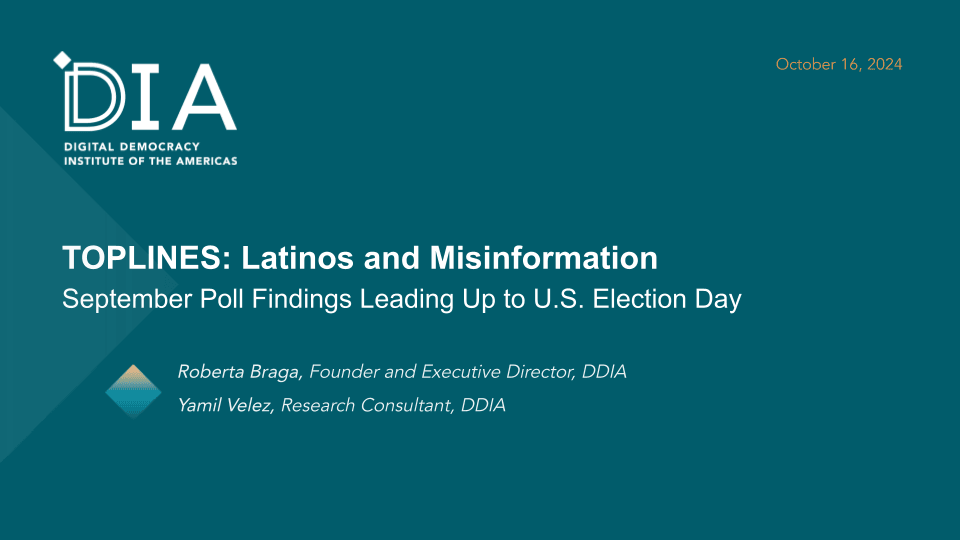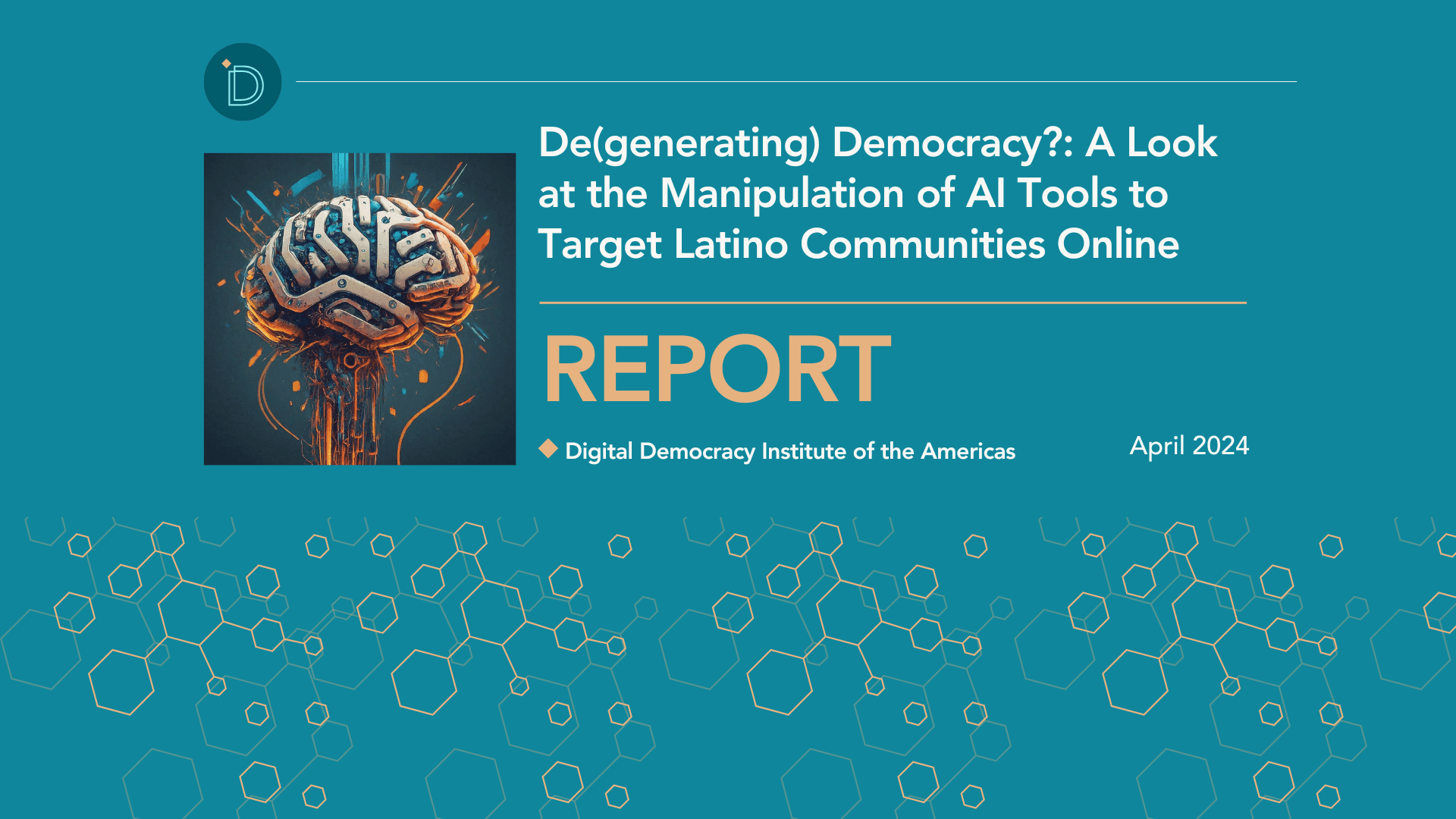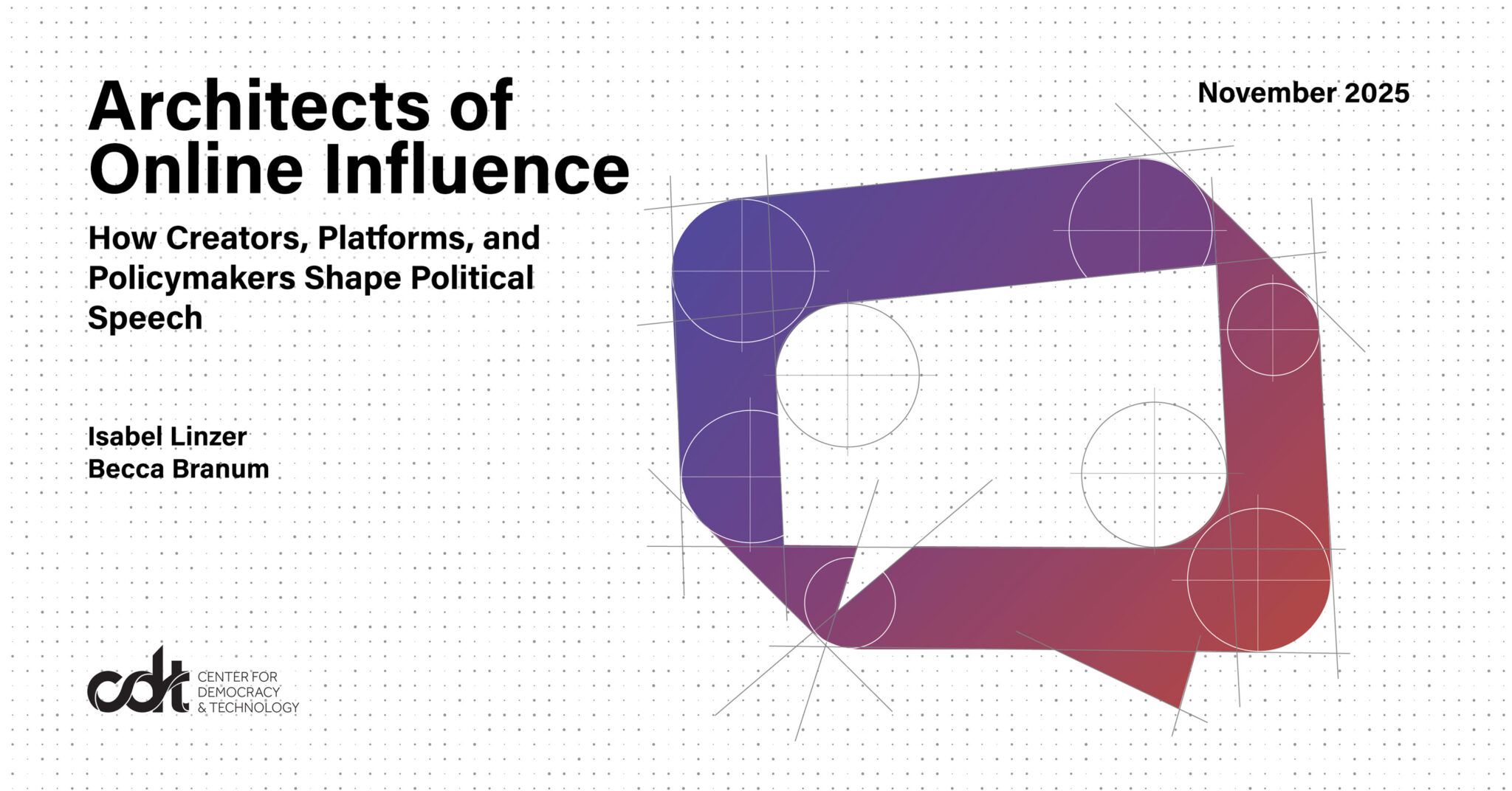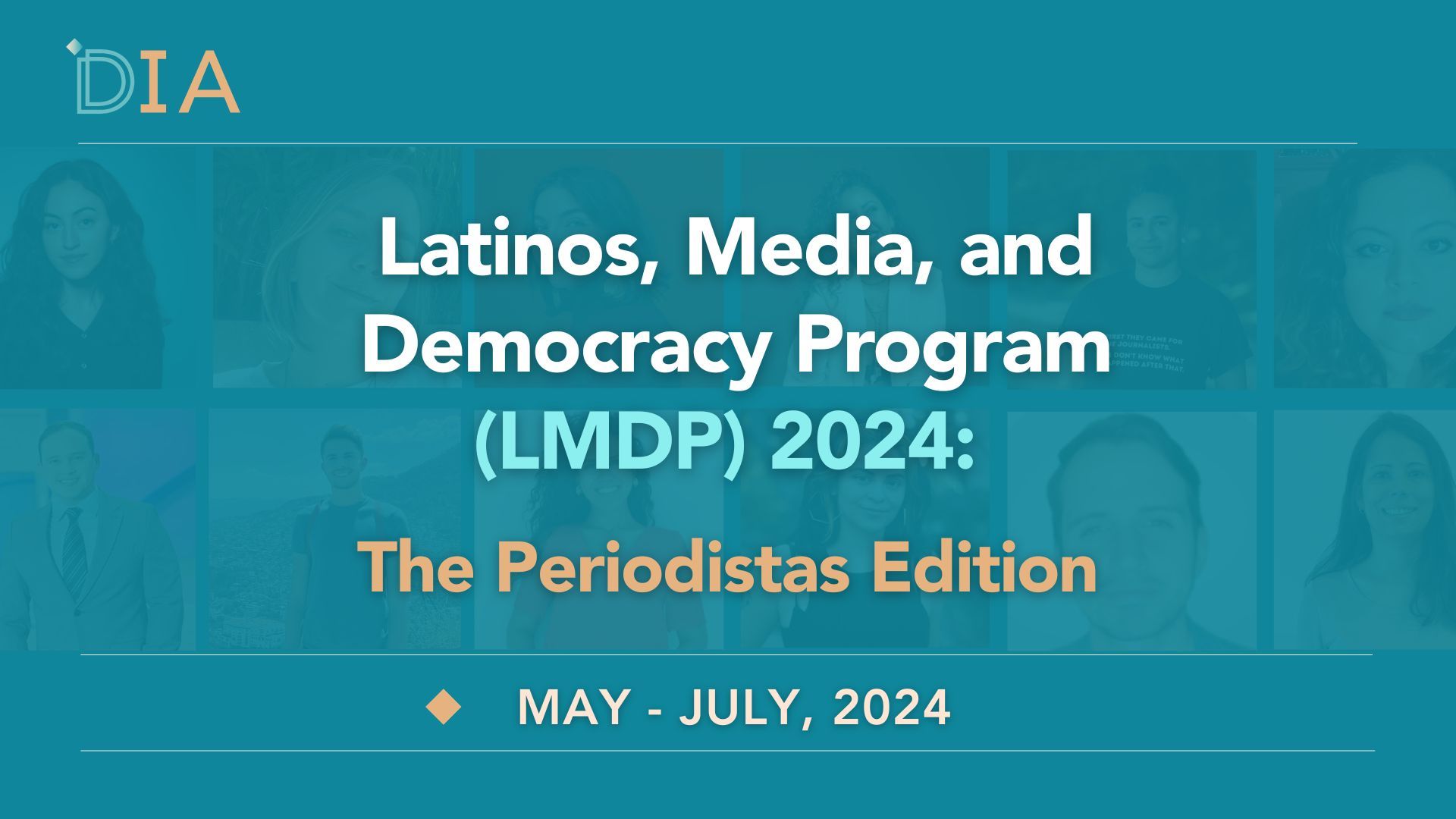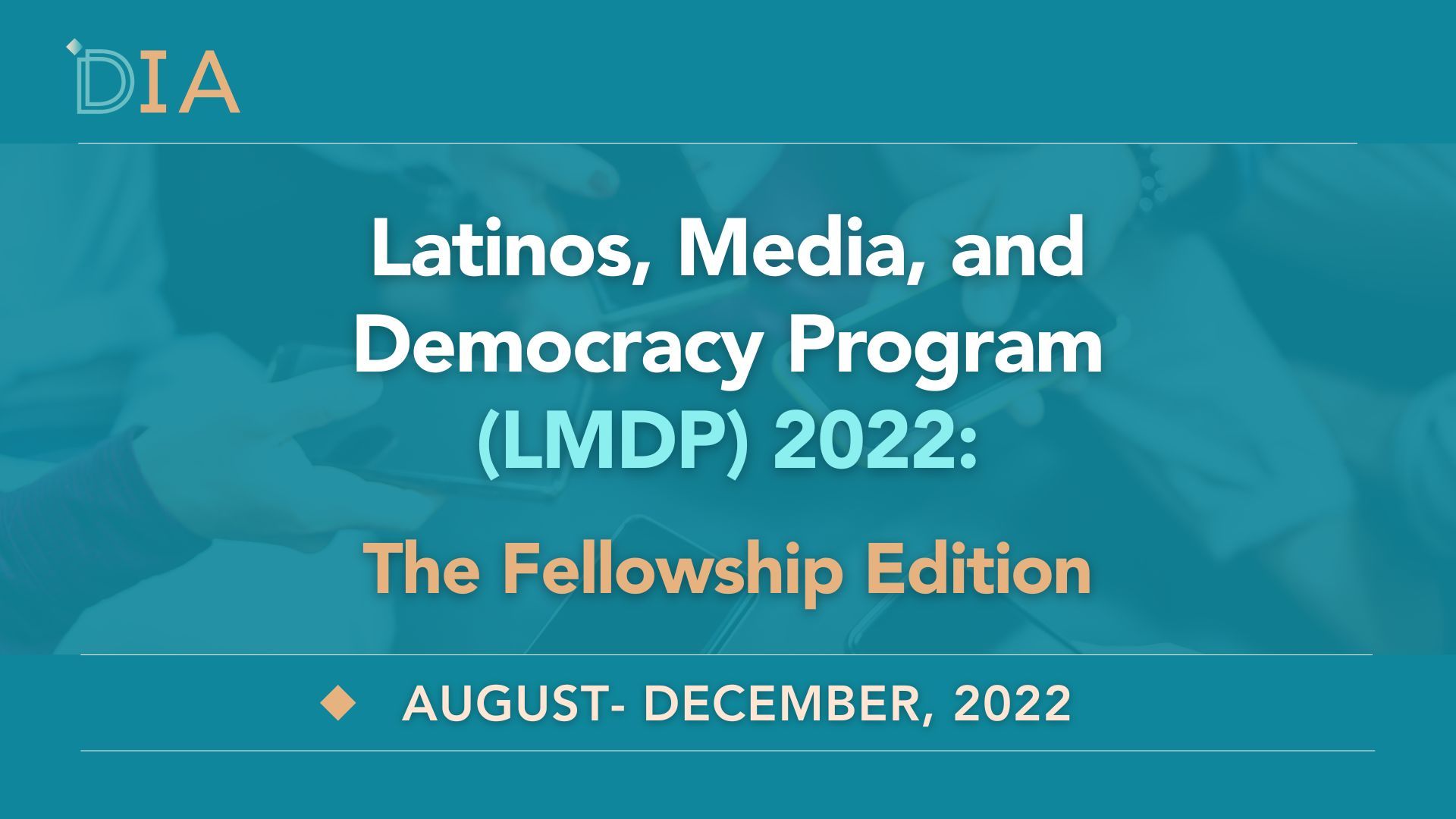






“Conversations with Latinos” explores how U.S. Latinos experience today’s digital world, from the content they prefer to consume on social media to the ways they detect harmful information, view AI-generated content, and understand Big Tech’s role in democracy. Conducted by the Digital Democracy Institute of the Americas (DDIA) in partnership with Factchequeado, this qualitative study combines online boards and in-depth interviews.


The Digital Democracy Institute of the Americas (DDIA) examined how X’s Community Notes system functions across English and Spanish, drawing from over 1.76 million notes submitted globally between 2021 and 2025. The report explores submission and publication dynamics, contributor behavior, and systemic challenges like transparency gaps and rating backlogs. As community-driven content moderation becomes a global model, this report sheds light on its potential, and limitations, for building a healthier online information ecosystem.


In September 2024, DDIA, in partnership with YouGov, conducted its second foundational survey of Latino adults across the United States. This comprehensive survey explored key topics such as misinformation narratives, trust in elections, political sentiments regarding Kamala Harris and Donald Trump, immigration views, and perspectives on generative AI technologies. Covering all 50 states and DC, the survey gathered insights from a diverse Latino population, with findings highlighting the stability of misinformation exposure, shifts in trust toward democratic institutions, nuanced attitudes on immigration, and growing concerns about AI's societal impact.


To understand how prebunking can be best harnessed for Latino communities in the U.S., the Digital Democracy Institute of the Americas (DDIA) conducted the first-of-its kind randomized controlled trial (RCT) with U.S. Latino communities to test various approaches to inoculation against the manipulative techniques of emotional language, ad-hominem attacks, and false dichotomies. We offer fourteen best practices for tailoring prebunking and inoculation for Latino audiences in the U.S. in this latest guidebook.


The Digital Democracy Institute of the Americas (DDIA) partnered with YouGov to conduct a nationally representative poll of 3,015 Latino adults that explored questions of: 1) Familiarity and belief in misinformation in the 2024 context, 2) The role of political identities and values in relation to engagement with misinformation, 3) Levels of trust in institutions and the electoral process, and 4) Perceptions about artificial intelligence’s influence in the online world.

We use our research to guide those working directly with communities on framing of narratives, inoculation exercises, depolarization workshops, media and digital literacy training, or other interventions. We also connect what has worked in one context to other contexts.





